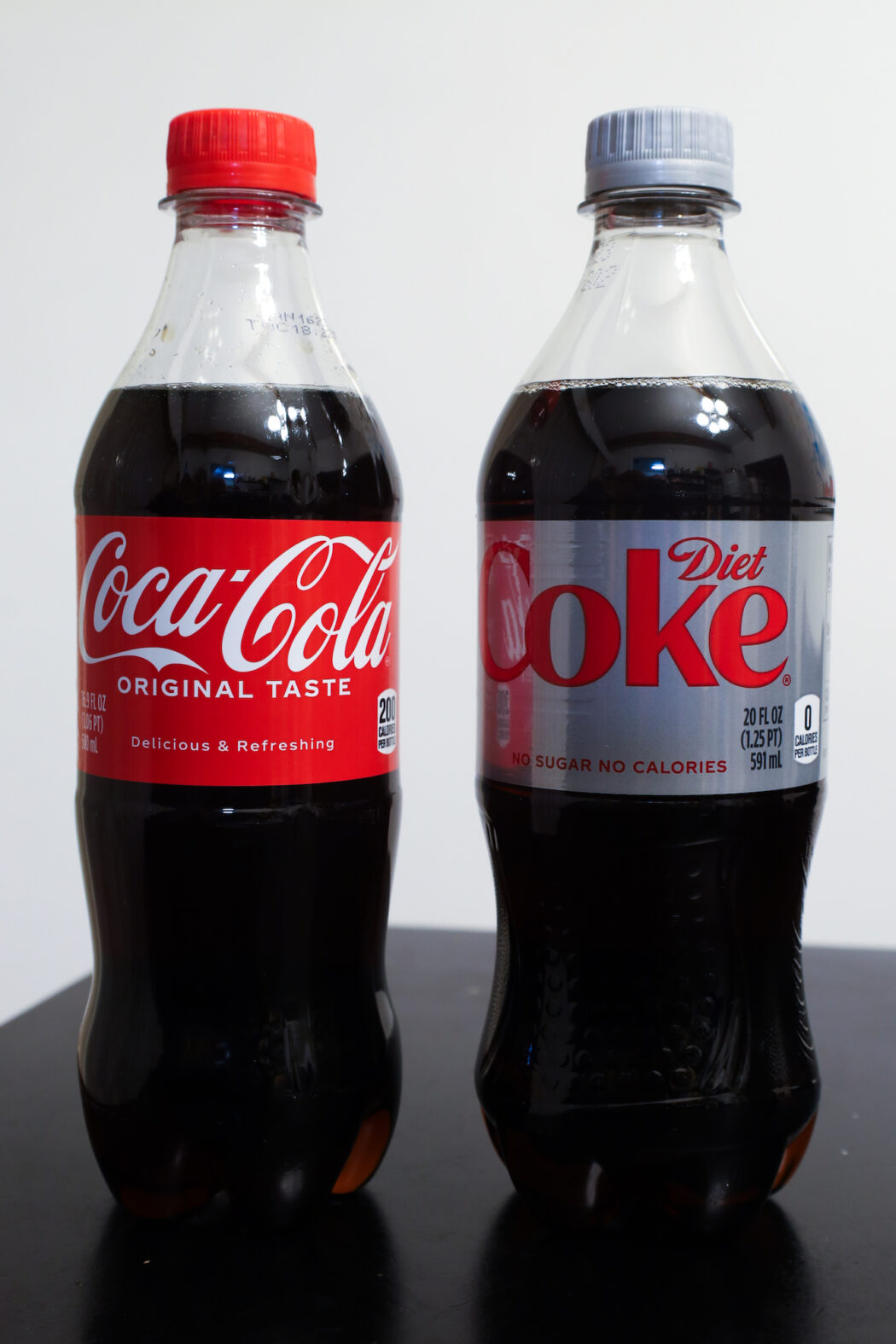Is diet soda really better for you?
Diet soda versus regular soda. Which is healthier for you? The answer may surprise you.
According to the Centers for Disease Control and Prevention 53.6% of Utahns drink a sugar-sweetened beverage. A sugar-sweetened beverage is defined as regular soda, sweetened fruit drinks, sports/energy drinks, and sweetened coffee/tea drinks.
Brooke Lister, a registered dietitian at Utah State University, provides answers to some questions about soda.
According to Lister, regular soda is made of soda water, flavoring and sweet syrup. The reason for the dark color in soda is the sugar caramelizing.
She explains the difference between diet soda and regular soda is how it is sweetened. Regular soda is sweetened with natural sugars, while diet soda is sweetened with artificial sweeteners.
Audrey Lidgard, a graduate student in food science, explains that artificial sweeteners work differently than natural sugars.
“Baseline for all sugar has a value of 100, but artificial sweeteners, some of them are ten times sweeter than sugar.”
A chart from Lidgard’s NDFS 5560 with USU professor Bob Ward gave more context — the following sweeteners are put into these foods:
Sucralose is used in Splenda and diet sodas
Sucrose is natural sugar
Saccharine is what is in Sweet’n Low
Cyclamates are from sweet taste of cigarettes
Aspartame is used in Nutrasweet and Equal
Neotame is used in Ice Breakers
Acesfulame K is used in Sunette and Sweet One
Artificial sweeteners are made by taking regular sugar and switching out one of the alcohol molecules with a chlorine molecule.
That is the simple way of putting it, but scientists need to perform chemical reactions in a lab to make the chlorine attach to the sugar.
The amount of calories you consume from artificial sweeteners in diet soda is “negligible” according to Lidgard.
“Nothing is exactly zero calories,” Lidgard said. “The amount of calories you get from diet or zero sugar soda is so small it is virtually insignificant.”
Artificial sweeteners also do not mix well with water, so scientists need to add an emulsifier to the diet soda to get it to mix, according to Lidgard.
“Soda is filled with sugar and empty calories,” Lister said. “Meaning that we really get no nutritional benefit from drinking soda.”
Lister said there can even be serious consequences for large consumption.
“There are no health benefits to drinking soda,” she said. “Consuming a lot of sugar-sweetened beverages like soda can lead to weight gain, type 2 diabetes, heart disease, kidney disease, and many other health conditions. Soda is also the leading cause of tooth decay.”
When questioned whether or not there should be government regulation on the consumption of soda, Lister said for regulation like that to be successful, it needs to be done on a local level — every community has different health necessities, so keeping it local will have bigger effects.
She cited regulations that took place in Philadelphia.
“In 2017, Philadelphia started taxing sugar-sweetened drinks and found that by 2018 consumption of sugar-sweetened beverages has decreased by 40%.”
The debate for regulating soda is complex but there no one seems to question that neither diet soda or regular soda is good for you.
Overall, both Lister and Lidgard say in order to lead a healthy life, one must simply drink water.
“If you are looking for something that is carbonated, sparkling waters are the healthiest alternative,” she said.
-Jack.Johnson@usu.edu
Featured photo by Kate Smith

